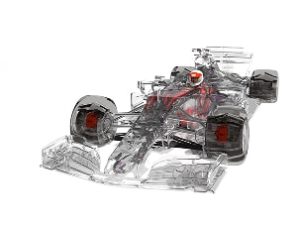
To the untrained eye all F1 cars look pretty much the same – so why is that some are always at the front and win the championship year after year and others are lapped before middle distance is reached? Reliability used to be a major issue in F1 racing but not anymore – and anyhow, as the old saying goes it’s easier to make a fast car reliable than it is to make a reliable car fast.
A winning combination needs a good driver and a well designed car.
Let’s take a little look at a few facts and figures behind the development of a winning formula 1 car.
More than 300 designers, machinists and aerodynamics people work on the development of a winning F1 car.
The journey from design to the finish stage will take anywhere up to 5 months.
Although the majority of teams use the latest CAD software and technology, some of the old school (and best) designers still prefer the old pencil and drawing board method – have you got any ideas who that could be?
After the initial concept has been created it is put through its paces in the wind tunnel – aerodynamics is a major part of the design process for a winning F1 racing car.
More than 1000 different parts are tested every week in the wind tunnel. They don’t use a full sized cars for this test; it’s usually around 60% in size.
During the course of one season the design team will work on more than 30,000 design changes.
And you thought they all looked the same . . . maybe you should take a closer look at the minute differences between the front and the back of the starting grid.